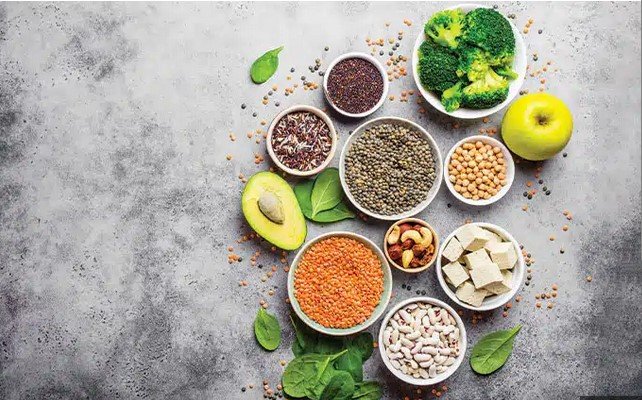When it comes to choosing a protein source, many people debate between soy protein vs animal protein. Both types offer essential nutrients, but they differ in their amino acid profile, digestibility, and health benefits. In this article, we’ll explore the key differences between soy protein and animal protein, helping you make an informed decision about which is best for your diet.

What is Soy Protein?
Soy protein is derived from soybeans, a plant-based food. It’s a complete protein, meaning it contains all nine essential amino acids that the body cannot produce on its own. Soy protein is commonly found in foods like tofu, tempeh, edamame, and soy milk. It’s a popular choice for vegetarians and vegans as a substitute for animal-based proteins.
What is Animal Protein?
Animal protein comes from animal sources like meat, poultry, fish, eggs, and dairy products. It is also a complete protein, providing all nine essential amino acids. Animal protein is a traditional protein source and is known for its high biological value, meaning the body can absorb and use the protein more efficiently. Foods like chicken, beef, salmon, eggs, and cheese are common sources of animal protein.
Protein Quality and Amino Acids
Both soy protein and animal protein are considered complete proteins, but the quality and digestibility can vary. Animal protein tends to have a higher biological value, meaning the body can more readily absorb and utilize it. It’s also rich in certain amino acids like leucine, which plays a key role in muscle protein synthesis and repair.
Soy protein, while still a complete protein, has a slightly lower biological value compared to animal protein. However, it contains significant amounts of all the essential amino acids and is often favored in plant-based diets due to its versatility and lower environmental impact. For those who avoid animal products, soy protein is an excellent alternative that can still support muscle repair and growth.
Nutritional Differences
While both soy protein and animal protein provide essential nutrients, there are some key nutritional differences to consider:
- Fat Content: Animal protein sources, particularly red meat and full-fat dairy, tend to be higher in saturated fat. High intake of saturated fat can contribute to heart disease and other health issues. Soy protein, on the other hand, is naturally low in saturated fat and contains healthy polyunsaturated fats, which can support heart health.
- Cholesterol: Animal proteins, especially from red meat and dairy, often contain cholesterol, which can contribute to higher blood cholesterol levels if consumed in excess. Soy protein is cholesterol-free, making it a heart-healthy alternative to animal protein for those concerned about cardiovascular health.
- Vitamins and Minerals: Animal protein sources are rich in certain vitamins and minerals, including vitamin B12, iron, and zinc, which are more readily absorbed by the body. Soy protein contains iron and zinc as well, but in smaller amounts, and the body may absorb these minerals less efficiently from plant sources. However, individuals who consume a well-balanced plant-based diet can meet their vitamin and mineral needs with proper planning.
- Fiber: Soy protein has the added benefit of containing dietary fiber, which aids in digestion and supports overall gut health. Animal protein sources contain little to no fiber, making it harder for individuals to meet their daily fiber requirements when relying solely on animal products.
Health Benefits of Soy Protein vs. Animal Protein
Both soy protein and animal protein offer health benefits, but they also come with some distinct advantages.
Health Benefits of Soy Protein:
- Heart Health: Soy protein has been shown to lower levels of LDL (bad) cholesterol, reducing the risk of heart disease. The presence of polyunsaturated fats in soy also contributes to heart health.
- Weight Management: Due to its fiber content and lower fat profile, soy protein can be a helpful addition to a weight management plan.
- Hormonal Balance: The isoflavones in soy act like estrogen in the body and may help reduce symptoms of menopause and support bone health, especially in women.
Health Benefits of Animal Protein:
- Muscle Mass and Recovery: Animal protein is rich in leucine, an amino acid that plays a key role in building and maintaining muscle mass. This makes animal protein particularly beneficial for athletes and those looking to build muscle.
- Bone Health: Animal protein is a good source of calcium (especially in dairy products) and other minerals, which contribute to strong bones and teeth.
- Vitamin B12 and Iron: Animal protein is one of the best sources of vitamin B12, which is crucial for nerve function and red blood cell production. It also provides heme iron, which is more easily absorbed by the body compared to the non-heme iron found in plant sources.
Conclusion
Both soy protein and animal protein offer unique benefits and essential nutrients, but the choice between the two depends on personal preferences and dietary needs. Soy protein is a heart-healthy, cholesterol-free, and fiber-rich alternative that fits well in plant-based diets. Animal protein, on the other hand, provides high biological value and is rich in nutrients like vitamin B12, iron, and leucine, which support muscle growth and overall health.
For a balanced approach, many people opt to include both soy and animal protein in their diet. This allows them to benefit from the unique advantages of each protein source. Whether you choose soy protein, animal protein, or a combination of both, it’s important to ensure you’re meeting your body’s nutritional needs.











